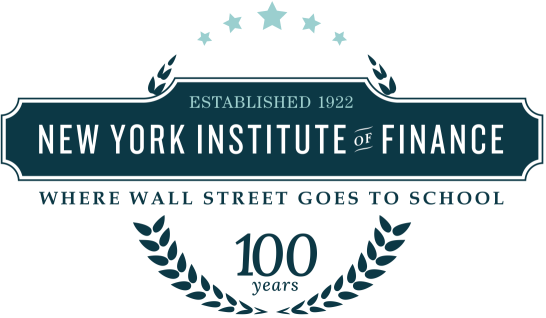The store will not work correctly when cookies are disabled.
JavaScript seems to be disabled in your browser.
For the best experience on our site, be sure to turn on Javascript in your browser.
Home
Online Professional Certificate in Asset Management
Online Professional Certificate in Asset Management
Learn investment and management best practices, get an edge on your professional competition, and become a practitioner of the distinct discipline of asset management. Take part in this integrated and dynamic curriculum of fiscal integrity, depth and vision offered to financial professionals seeking to hone the art and science of optimizing asset value and delivering first-rate wealth management.
CPE Credits: 40
Duration : 7 hour
Common Stock
Preferred Stock
EquityLinked Issues
Indexes
Duration : 7 hour
The Institutional Investor
The Individual Investor
Money Markets and Portfolio Management
Managing Portfolios with Equities
Portfolio Theory: Risk and Return
Portfolio Theory: Portfolio Monitoring
Duration : 8 hour
Bond Valuation
Portfolio Volatility and Duration
Advanced Equity Valuation Techniques
Advanced Portfolio Management Theory
Global Investing and Alternative Investments
Indexation
Style Investing
Evaluating Portfolio Performance
Duration : 4 hour
Investor Profiling
Portfolio Management and Duration
Introduction to Portfolio Risk
Asset Allocation and Taxation
Duration : 5 hour
Introduction to Trusts
Trusts and Taxation
Characteristics of Trusts
Types of Trusts
Duties of a Trustee
Duration : 3 hour
Bonds and their Features
The Fixed Income Marketplace
The Fixed Income Regulatory Environment
Duration : 6 hour
Introduction to Forwards and Futures
Forward Rate Agreements
Short-Term Interest Rate Futures
Note and Bond Futures
Stock Index Futures
Risks of Forwards and Futures
Establish an instinct for equity strategy and security selection.Cultivate relationships with both likeminded professionals and potential clients. Refine your skills developing, managing and monitoring activities of asset programs. Develop an aptitude for identifying efficiencies and savings. Learn to optimize, document, and present findings to Clevels and board members. Identify how returns are generated on preferred stocks. Identify the different categories of common stocks. Read and comprehend stock quotations in the financial press, Read and comprehend stock option listings. Apply the FiveWay Model to analyze and understand prospective clients and their needs. Identify and apply portfolio management process. Utilize different types of investment instruments. Discuss and apply evaluation of risk, diversification, credit risk, and asset allocation. Identify and apply the four theories that explain the shape of typical bond yield curves. Recognize key alternative investments. Understand how to diversify among asset classes in a portfolio, and allocate a client's assets among the appropriate assets. Prepare yourself for factors that immunize a portfolio. Recognize the basic rules associated with gift/estate taxes, generationskipping transfer taxes, and related tax implications. Identify how revocable/ irrevocable trusts, specification of beneficiaries, and vested/contingent interest affect a trust. Identify trust characteristics associated with disposition of trust principal and trust income. Identify the duties of a trustee, and identifying investors. Identify the purpose, characteristics and assorted types of bonds and learn to calculate appropriately. Depict interest rate risk in terms of duration. Explain how the U.S. Federal Reserve controls shortterm interest rates. Identify factors that impact option price. Define volatility as it relates to the price of the underlying security. Identify how different kinds of volatility plays make money. Identify the similarities, risks, and functions of forwards and futures. Define the different types of ratios used for credit analysis. Recognize the factors that go into determining a company's optimal capital structure.
Wealth management professionals, Trading professionals, Portfolio Managers, Private bankers, Financial Advisors, Auditors, Accountants
